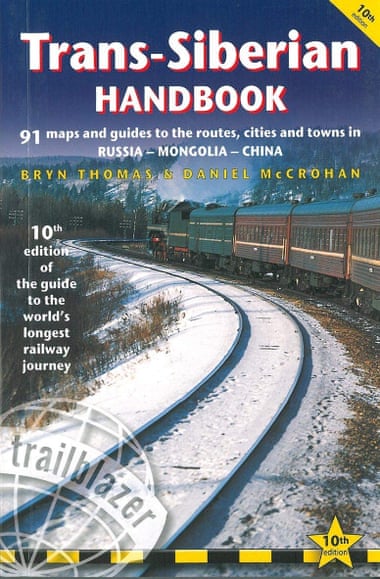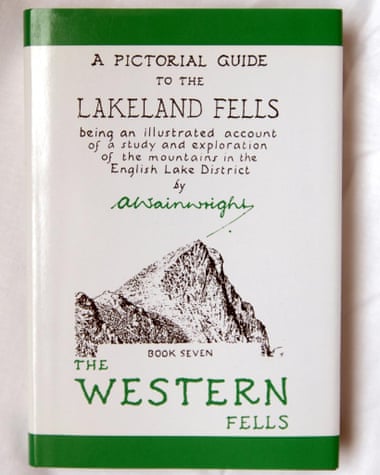[ad_1]
It was 2011 when a good friend of mine returned to the UK having travelled overland from Thailand, and casually talked about that he had made the complete journey utilizing simply his iPhone – no maps, and positively no guidebook. When he wanted to make a detour round Myanmar, to seek out out what time the primary submit workplace closed in Delhi, or to guide an affordable lodge room in Istanbul, he turned to journey boards, Google and TripAdvisor.
It was across the similar time that articles started showing within the press, proclaiming the demise of the guidebook. After reaching a peak in 2005, gross sales declined by an estimated 40% within the UK and US between 2005 and 2012. Seeing the writing on the wall, a number of impartial guidebook publishers offered as much as multinational media corporations, together with Lonely Planet, which was purchased by BBC Worldwide for round £130m. Lower than three years after finishing the acquisition, the BBC’s industrial arm sold it off for just £50m, acknowledging it had not been a sound funding. In 2012 Frommer’s, the bestselling journey information model within the US, was sold to Google, which stated it could cease publishing printed editions.
It appeared guidebooks had had their day. Their golden age of the Nineties, when backpackers galore set out with a well-thumbed copy of Alex Garland’s The Seaside and a Lonely Planet information, had been over. However as Mark Twain may need noticed, studies of the guidebook’s demise are tremendously exaggerated. Whereas the mainstream manufacturers have suffered within the digital age, it seems there’s one other facet to the story. Sure guidebooks have merely refused to die.
The titles defying the percentages are the merchandise of small, impartial publishers and passionate authors. Bryn Thomas, founding father of Trailblazer Guides, cites two of his titles as internet-resistant: The Journey Motorcycling Handbook and The Trans-Siberian Handbook, the latter now in its thirtieth yr and its tenth version, with 140,000 copies offered.

“As the unique writer I’d prefer to say it’s all right down to me,” he says, with a smile. “But it surely’s most likely extra to do with having employed like-minded authors to maintain it up to date by travelling the rails once more for every replace.”
Thomas believes the success of a guidebook lies within the authorial voice. “It takes a sure sort of writer, somebody verging on the obsessive however who may convey the knowledge in an entertaining and readable means. A correct writer, not a bunch or committee. Somebody with deep data and strong opinions you’ll be able to belief – a real information.”
It’s these sorts of titles – guides to once-in-a-lifetime journeys – which can be proving to be probably the most resilient. Travellers could now not trouble shopping for a information for a weekend metropolis break or perhaps a fortnight’s summer season vacation, however in the event you’re planning the Massive One, a visit that includes many months and even years of preparation, it’s nonetheless a vital little bit of equipment. The acquisition of the guidebook is usually a major second – it marks the dedication to the concept, the second the dream turns into a actuality.
There are lots of, typically uncontrollable elements that decide the success of a title. Hugh Brune, head of gross sales and advertising at Bradt Guides, cites the corporate’s Iran information as each its bestselling and worst-selling title, relying on the prevailing diplomatic scenario. Thomas at Trailblazer can be eager to level out one other issue: the rising demand for trusted curation amid the doubtful quagmire of Google evaluations and TripAdvisor scores. He provides the instance of a burger bar which is at present TripAdvisor’s No 1-rated restaurant in Paris. “It’s clearly not one of the best restaurant in Paris,” he says wryly. “However their PR firm is clearly doing a terrific job of getting individuals to ‘like’ them.”
Whereas guidebooks for grand or specialised adventures could high the record, they aren’t the one success story. Whereas the pandemic has skewed home gross sales in the direction of UK-focused books up to now yr, David Mantero, head purchaser at Stanfords journey bookshop in London, reels off a various record of constant high sellers: “Japan by Rail has grow to be one thing of a traditional for us. Reeds Nautical Almanac – it’s a should in that scene. And the Wainwrights.”

“The Wainwrights” is a reference to the seven-volume Pictorial Guide To The Lakeland Fells, the much-loved illustrated strolling guides to the Lake District created by Alfred Wainwright between 1955 and 1966. With gross sales of over two million, they function the proper instance of Thomas’ “authorial voice” concept.
Andrew Dawson, publicity officer for the Wainwright Society, agrees: “The descriptions of the fells are written as if Alfred Wainwright is speaking to you personally and keen you on to the summit,” he says. He additionally believes {that a} latest growth of their recognition displays the rising must reconnect with the tangible in an more and more digital world.
“The Wainwright books are a factor of magnificence in themselves. It’s just like the resurgence within the recognition of vinyl information. Sure, all of us like to obtain music however nothing can exchange the sensation of an actual document. Identical for the books. Digital mapping, apps, GPS are incredible however what can beat strolling a Wainwright fell and actually following in his footsteps whereas studying his quirky descriptions?”
One criticism of guidebooks within the pre-digital age was that they carved a predictable trudge on which backpackers bounced between the identical hostels and cafes, experiencing nothing remotely resembling a lonely planet. The titles which have survived are of a distinct breed, as a lot artistic endeavors and storytelling as a easy “the place to” information.
When it turned clear that Google had no intention of printing additional Frommer’s guides, firm founder Arthur Frommer purchased the model again. The guidebooks – which his daughter Pauline Frommer, who’s the corporate’s editorial director, has described as “not meant to be encyclopaedic however curated … constructed to information the reader to probably the most genuine, invigorating journey experiences potential” – have now re-established themselves among the many main journey titles.
Whereas travellers now not want to hold round half a kilo of paper to seek out the railway station in a faraway metropolis, they are going to at all times crave a spark of inspiration and a reference to the like-minded. That is the place these specialist titles excel – they’re not for admin on the highway, however one thing to ignite the creativeness. They’re browsed for pleasure throughout pre-trip dreaming and planning, after we learn the phrases of others who’ve gone earlier than, and assume, sure, I’m going to do that too.
These human-scale books, written and printed by individuals who genuinely know and love their topic, are good for journey’s post-pandemic restoration.
[ad_2]
Source link

Recent Comments